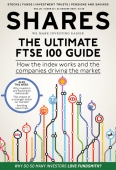Archived article
Please note that tax, investment, pension and ISA rules can change and the information and any views contained in this article may now be inaccurate.
How to avoid becoming the next pension fraud victim

Fans of Emmerdale might have recently noticed a slightly different advert during the break.
Sandwiched between the usual messages about state-of-the art 4x4s and life-changing coffee granules was a minute-long clip from The Pensions Regulator (TPR) and the Financial Conduct Authority (FCA) on pension scams.
The advert splices footage of a fraudster jet skiing with
his victim, who struggles to hold back tears as he explains how his entire pension was stolen by this slick, seemingly professional ‘adviser’.
You should expect to see more publicity around scams over the coming months as policymakers recognise the ban on pensions cold-calling – due to be in place in the Autumn – will only go part of the way to stemming the flow of money out of retirement pots and into the hands of unscrupulous fraudsters.
Indeed, while unsolicited calls are a big part of the problem, the internet and social media provide fertile ground for scammers to market their bogus schemes.
The statistics associated with pension fraud are striking. According to the FCA, retirement scam victims lose a staggering £91,000 on average each, while City of London Police have recorded almost £400m in investment fraud losses since April 2016.
The pension freedoms have essentially placed a big fat target on the backs of those close to or over 55. And with scammers’ tactics becoming ever-more sophisticated, it’s more important than ever you do your due diligence before investing your hard-earned retirement fund.
WAYS TO PROTECT YOURSELF
Here are some simple tips you can follow to protect yourself from becoming a pension scam victim.
Firstly, be extremely wary of any investment ‘opportunities’ that come out of the blue – for example through a cold-call – or people claiming to be ‘advisers’ offering a ‘free pension review’. Professional advice is never free and so following the old maxim ‘if it sounds too good to be true, it probably is’ is a sensible approach.
Secondly, make sure you know who you are dealing with. After all, your pension could be the most valuable asset you own, so don’t hand it over to someone unless you know their credentials check out.
Slick fraudsters will sometimes pretend to be a bona fide company when in fact they are nothing of the sort, so have a look at the FCA register to see if the firm you are dealing with actually exists.
Thirdly, don’t be rushed or pressured – such tactics should set off a big red warning light in your mind and are often indicative of a scam.
And finally, if you’re at all unsure speak to a qualified, regulated financial adviser. You will need to pay for this but usually the benefit far outweighs the cost.
Tom Selby, senior analyst, AJ Bell
Important information:
These articles are provided by Shares magazine which is published by AJ Bell Media, a part of AJ Bell. Shares is not written by AJ Bell.
Shares is provided for your general information and use and is not a personal recommendation to invest. It is not intended to be relied upon by you in making or not making any investment decisions. The investments referred to in these articles will not be suitable for all investors. If in doubt please seek appropriate independent financial advice.
Investors acting on the information in these articles do so at their own risk and AJ Bell Media and its staff do not accept liability for losses suffered by investors as a result of their investment decisions.
Issue contents
Big News
- Hill & Smith directors take advantage of profit warning-led share weakness to snap up stock
- Investors shift focus to defensive stocks
- Pressure on corporate brokers implies potential wave of M&A
- Trump attacks the US Federal Reserve
- London hoteliers set to report bumper numbers following July heatwave

 magazine
magazine









